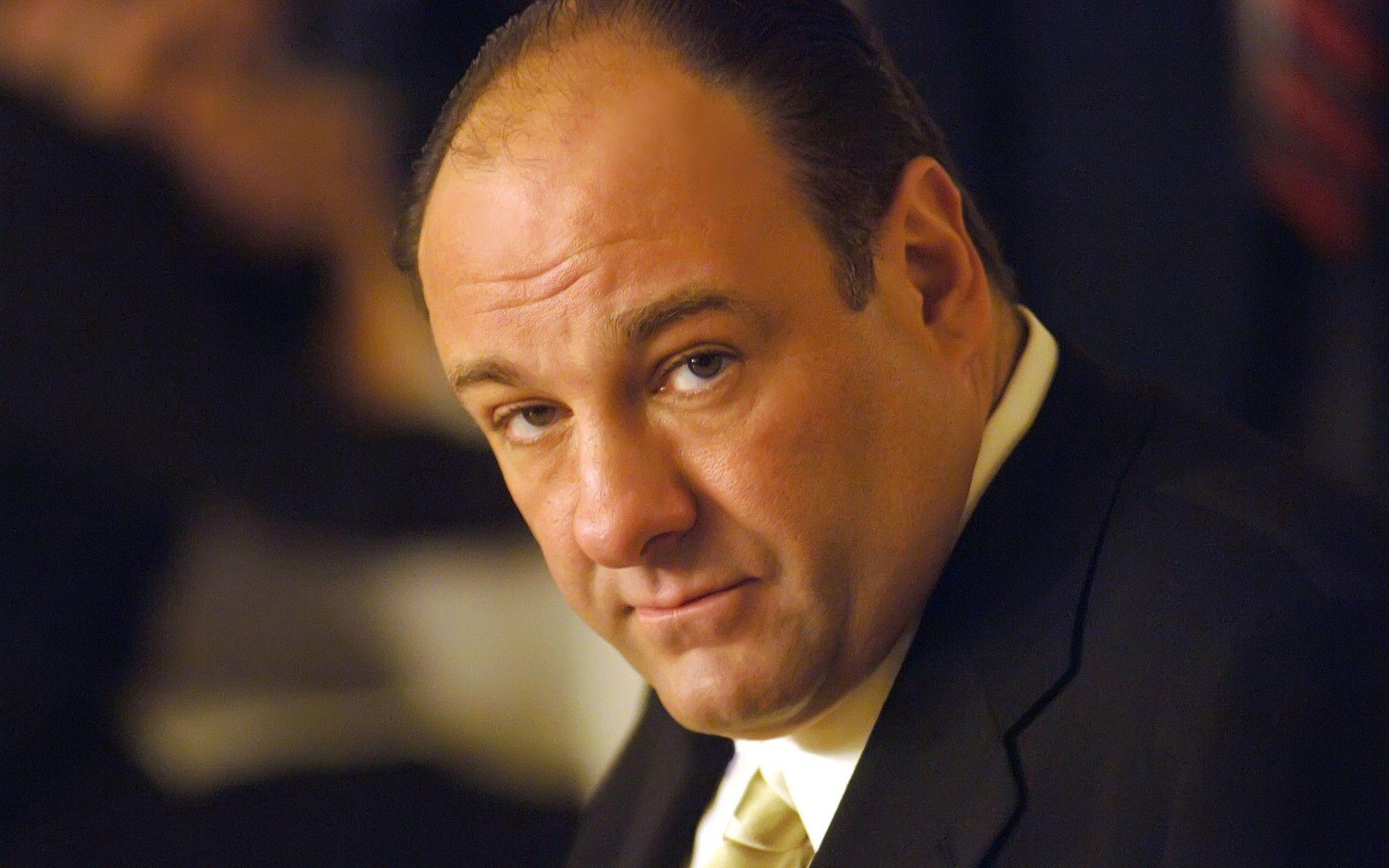When the news broke that Tony Soprano died, the world stopped for a moment. It wasn't just about a fictional character—it was about the impact he had on television history. The man who brought us the Soprano family, the struggles of mob life, and the complexities of therapy became more than just a show. He became a cultural phenomenon. So let's dive into the story behind the death of Tony Soprano, and why it still resonates with fans today.
It all started with a simple question: "What happens after?" Fans of "The Sopranos" have been debating this ever since the show ended. The infamous final scene left everyone scratching their heads, wondering if Tony Soprano died or if he simply faded into the darkness of his own mind. It's one of those moments in TV history that sparks endless conversations, and for good reason.
This article isn't just about the death of Tony Soprano—it's about the legacy he left behind. From his complex relationships to his struggles with mental health, Tony Soprano was more than just a mob boss. He was a character that represented the human condition in all its messy glory. Let's break it down together, piece by piece, and explore why his death matters so much.
- Is Tony Romo Married The Complete Lowdown On His Love Life
- Is Phantom Of The Opera Still On Broadway The Timeless Tale Lives On
Table of Contents
- Biography of Tony Soprano
- The Final Episode: What Happened?
- Death Theories and Fan Speculations
- The Legacy of Tony Soprano
- Psychology Behind Tony's Death
- Impact on Pop Culture
- David Chase: The Mind Behind the Show
- Criticism and Controversy
- The Future of "The Sopranos" Franchise
- Conclusion: Why Tony Soprano Still Matters
Biography of Tony Soprano
Tony Soprano wasn't just any mob boss—he was a complex character with layers that made him stand out. Born as Anthony John Soprano, he was the head of the DiMeo crime family in New Jersey. But his life wasn't all about crime and power. Tony struggled with depression, panic attacks, and family issues, making him one of the most relatable anti-heroes in television history.
Early Life and Family
Tony was born in 1959 to Livia and Giovanni Soprano. His childhood wasn't easy—his mother was emotionally distant, and his father was a mobster. These early experiences shaped Tony's personality and his approach to life. Here's a quick rundown of his family:
| Name | Relation | Role |
|---|---|---|
| Livia Soprano | Mother | Emotionally distant |
| Giovanni Soprano | Father | Former mob boss |
| Carmela Soprano | Wife | Homemaker |
| Meadow Soprano | Daughter | College student |
| Anthony Jr. Soprano | Son | Struggles with ADHD |
These relationships played a crucial role in Tony's life, influencing his decisions and actions throughout the series.
- Tim Walz The Soaring Star Of Minnesota Politics
- Taylor Swifts Net Worth The Untold Story Of Her Musical Empire
The Final Episode: What Happened?
The final episode of "The Sopranos" aired on June 10, 2007, and it left fans stunned. The screen went black in the middle of a scene, leaving everyone wondering what happened to Tony. Did he die? Was it symbolic? Let's break it down.
Here's what we know: Tony was sitting in a diner with his family, waiting for his uncle Junior to arrive. The camera focused on his face as the music played, and then—bam! The screen went black. Some fans believe this was a metaphor for Tony's life, while others think it was a literal death.
Possible Explanations
- Heart Attack: Some theories suggest that Tony suffered a heart attack in the diner.
- Symbolic Death: Others believe that the black screen represented Tony's psychological state.
- Open-Ended: David Chase, the creator of the show, has always maintained that the ending was open to interpretation.
Death Theories and Fan Speculations
Fans have been debating the death of Tony Soprano for years. Some believe he died, while others think he lived on. Here are some of the most popular theories:
Heart Attack Theory
This theory suggests that Tony suffered a fatal heart attack in the diner. The stress of his life, combined with his unhealthy habits, made it a plausible scenario. Supporters of this theory point to the music in the final scene, which they believe symbolized Tony's heartbeat slowing down.
Symbolic Death Theory
Others argue that Tony's death was symbolic rather than literal. The black screen represented his journey into the unknown, a metaphor for the complexities of life and death. This theory aligns with the show's themes of existentialism and the human condition.
The Legacy of Tony Soprano
Tony Soprano's legacy extends far beyond the screen. He changed the way we think about television, paving the way for complex anti-heroes in shows like "Breaking Bad" and "Mad Men." His struggles with mental health and family issues resonated with viewers, making him one of the most iconic characters in TV history.
According to a study by Nielsen, "The Sopranos" was one of the most-watched cable shows of its time, with an average of 11 million viewers per episode. Its impact on pop culture is undeniable, and Tony Soprano remains a symbol of the golden age of television.
Psychology Behind Tony's Death
The psychology behind Tony's death is fascinating. Many fans believe that the final scene was a reflection of his inner turmoil. His struggles with depression and anxiety were central to his character, and the abrupt ending mirrored the unpredictability of life.
Dr. Jennifer Hartstein, a clinical psychologist, explains that Tony's death could be seen as a metaphor for the human experience. "The black screen represents the unknown, the part of life we can't control," she says. "It's a powerful reminder that life is full of surprises."
Impact on Pop Culture
"The Sopranos" changed the landscape of television, influencing everything from storytelling to character development. Its impact on pop culture is evident in the way modern shows approach complex characters and plotlines.
According to Entertainment Weekly, "The Sopranos" was one of the first shows to tackle serious issues like mental health and family dynamics. Its success paved the way for other groundbreaking series, proving that audiences were ready for more sophisticated storytelling.
David Chase: The Mind Behind the Show
David Chase, the creator of "The Sopranos," has always been a mystery. He's known for his cryptic interviews and reluctance to explain the show's twists and turns. In a 2007 interview with The New York Times, Chase said, "I don't want to tell people what to think. I want them to figure it out for themselves."
Chase's vision for "The Sopranos" was revolutionary. He wanted to create a show that was as complex and messy as real life, and he succeeded. His decision to end the show with an ambiguous scene was a testament to his commitment to artistic integrity.
Criticism and Controversy
Not everyone was a fan of the final episode. Some viewers were frustrated by the lack of closure, while others felt that the show should have ended earlier. Critics like Roger Ebert were divided, with some praising the boldness of the ending and others dismissing it as lazy storytelling.
Despite the criticism, "The Sopranos" remains a beloved show. Its ability to spark conversation and debate is a testament to its lasting impact. As Chase once said, "If people are talking about it, then we've done our job."
The Future of "The Sopranos" Franchise
The legacy of Tony Soprano continues to live on. In recent years, there have been rumors of a "Sopranos" revival or spin-off. While nothing has been confirmed, fans remain hopeful that the story will continue.
In 2021, "The Many Saints of Newark," a prequel film, was released, offering a glimpse into Tony's early life. The film was well-received by critics and fans alike, proving that the Soprano family still has stories to tell.
Conclusion: Why Tony Soprano Still Matters
Tony Soprano's death remains one of the most talked-about moments in television history. Whether he died or simply faded into the unknown, his legacy continues to inspire and intrigue fans around the world. His story reminds us that life is messy, unpredictable, and full of surprises.
So, what can we take away from all this? First, embrace the unknown. Life doesn't always give us neat little answers, and that's okay. Second, appreciate the complexity of human nature. Tony Soprano was far from perfect, but his flaws made him relatable and real.
Finally, don't forget to share this article with your friends and family. Let's keep the conversation going and honor the memory of Tony Soprano by celebrating the impact he had on our lives. Who knows? Maybe one day we'll finally get the answers we've been waiting for.
- Drakes Mom Name The Untold Story Behind The Queen Behind The Throne
- Austin Nichols The Rising Star In Hollywood You Need To Know


